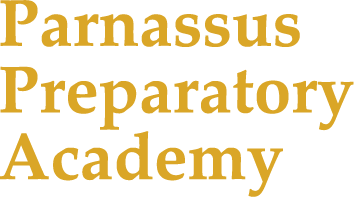“Two roads diverged in a wood, and I – I took the one less traveled by, and that has made all the difference.”
Classical Education
Our model for learning is ancient, but couldn't possibly be more relevant today. It has helped to create some of the great thinkers throughout history, and in our complicated world, we are certainly in need of great thinkers. Classical education creates those thinkers, inspires a lifelong passion for learning, and reaches students' hearts, minds and souls.
Modern education seeks to train for a job or career. Classical education seeks to train students about what is true, what is good, and what is beautiful to prepare them to fulfill their purpose as human beings and to more able use their gifts in the service of others. To do this, classical education spends a lot of time looking at past works of literature, history and philosophy so that students can understand who they are and what they ought to be in the present day. Classical education seeks to prepare students to be excellent learners, rigorous thinkers, and effective doers.
Meaningful Experience
The modern-day high school experience is a far cry from what it used to be, and we believe there are more meaningful experiences available during these years. We strongly believe the middle and high school years matter and are to be treasured, and therefore provide an experience to make the most of those years while simultaneously preparing students for life after graduation.
While some say large schools are beneficial as they expose students to “the real world,” we have actually seen that our environment, while small and nurturing, simulates adult life in meaningful ways. Students are expected to cooperate and be in community with a variety of students across ages and backgrounds. Perhaps most importantly, the environment at PPA is one of healthy but high expectations, respect, deep relationships, and professionalism, without the distractions common to large schools such as drugs, violence/fighting, technology distractions, bullying, displays of sexuality, and alcohol.
High Standards
Our standards are high for our students and they live up to them! We expect developing excellence and exemplary character, and our program requires learning the value of hard work. Under the care of a nurturing community, students exceed their own expectations and take pride in their achievements.
Our Structure
Our program is designed after a University Model, with a full load of classes completed on 2 days per week and the remaining weekdays free to complete studies. This enables students to learn to use their time well, prepares them for college and offers flexibility. Our classes are also small (6 minimum to 16 maximum), enabling teachers to really know and mentor their students, while fostering a close community amongst diverse peers.
We are not a public, private, or charter school. Our program supports an independent study model and is of value specifically to students homeschooling through a charter, private school affidavit, or private school satellite program.
Our Teachers
In the traditional classroom, a knowledgeable, enthusiastic teacher carefully leads students into an understanding of each subject. Our teachers are highly qualified in and passionate about their subject matter and take immense satisfaction in facilitating their students’ intellectual growth. Always looking to strike a balance between challenging students and nurturing them, the PPA faculty are distinguished by their capacity to identify, respect, and cultivate each student’s gifts, interests, and hard work.
Students and Parents
Students who really love and benefit from PPA Upper Grades Program are students who value learning and rise to the occasion in the face of challenge...or they are students who desire to reignite their passion for learning. They are students who value a more intimate setting and are motivated to go on with their learning (college), to prepare for leadership and service roles in the future.
Parents are deeply connected to everything that happens in the Upper Grades Program. Under the leadership of the instructor, the parents accept the role of mentor as the student is for the most part independent in grades 7-12. Students are expected to take responsibility for their lessons, communicate with teachers, and do their work. Parents are expected without exception to take part in training sessions offered in order to become familiar with the curriculum and basic teaching techniques.
